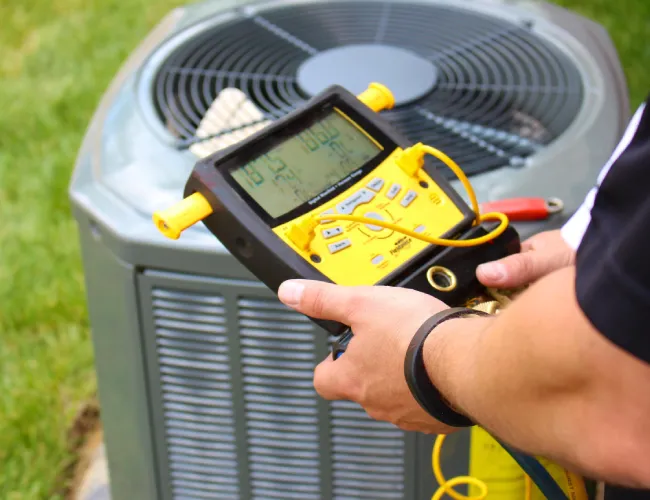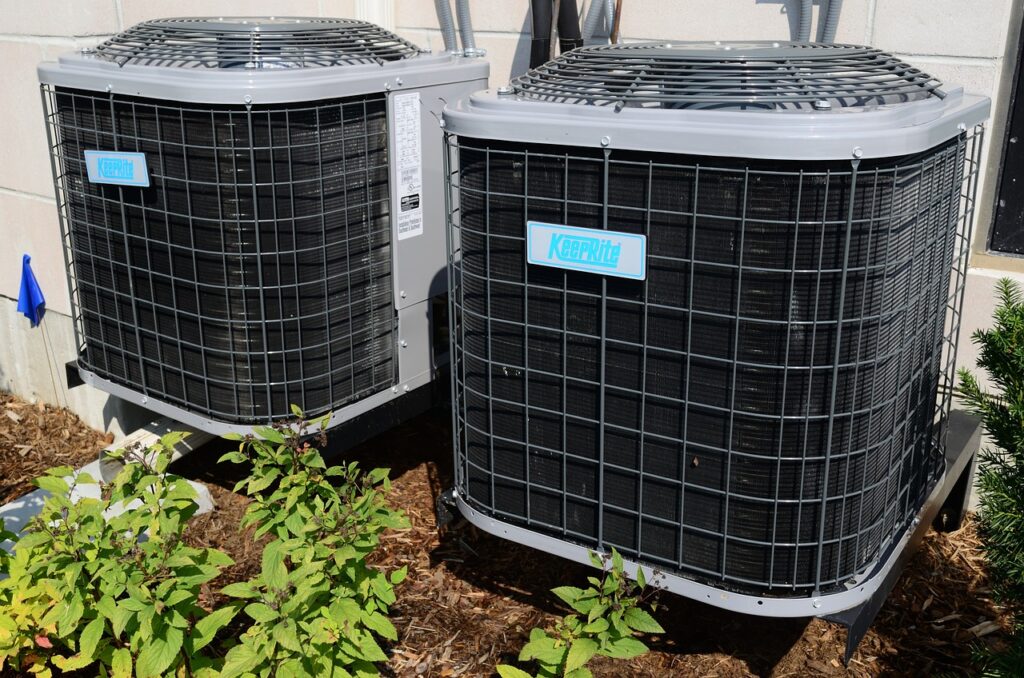Choosing the right HVAC (Heating, Ventilation, and Air Conditioning) system for your home is a crucial decision that impacts your comfort, energy efficiency, and long-term savings. With so many options available, it can feel overwhelming to determine which system is best suited for your needs. In this blog post, we’ll walk you through the key factors to consider when selecting an HVAC system, ensuring you make an informed decision that keeps your home comfortable year-round.

1. Understand Your Home’s Needs
The first step in choosing the right HVAC system is understanding your home’s specific requirements. Consider the following:
- Size of Your Home: The square footage of your home plays a significant role in determining the capacity of the HVAC system you need. A system that’s too small will struggle to heat or cool your space, while one that’s too large will cycle on and off frequently, wasting energy.
- Climate: Your local climate is another critical factor. Homes in colder regions may require a more robust heating system, while those in warmer areas might prioritize efficient cooling.
- Insulation and Airflow: The quality of your home’s insulation and ductwork affects how well an HVAC system can perform. Poor insulation or leaky ducts can lead to energy loss, so address these issues before installing a new system.
2. Choose the Right Type of HVAC System
There are several types of HVAC systems available, each with its own advantages. Here are the most common options:
- Central Air Conditioning and Heating: This is the most traditional system, using ductwork to distribute air throughout your home. It’s ideal for larger homes with existing ductwork.
- Ductless Mini-Split Systems: These systems are perfect for homes without ductwork or for room additions. They allow for zoned heating and cooling, giving you more control over individual rooms.
- Heat Pumps: Heat pumps are energy-efficient systems that provide both heating and cooling. They work best in moderate climates but can be paired with a furnace for colder regions.
- Hybrid Systems: These combine a heat pump with a gas furnace, offering flexibility and energy efficiency. They automatically switch between the two based on outdoor temperatures.
- Geothermal Systems: If you’re looking for a sustainable option, geothermal systems use the earth’s natural heat to regulate your home’s temperature. While expensive to install, they offer significant long-term savings.
3. Consider Energy Efficiency
Energy efficiency is a critical factor when choosing an HVAC system. Look for systems with a high SEER (Seasonal Energy Efficiency Ratio) rating for cooling and a high AFUE (Annual Fuel Utilization Efficiency) rating for heating. The higher the rating, the more efficient the system.
Additionally, consider systems with the ENERGY STAR® label, which meet strict energy efficiency guidelines set by the U.S. Environmental Protection Agency. While energy-efficient systems may have a higher upfront cost, they can save you money on utility bills over time.

4. Evaluate Your Budget
Your budget will play a significant role in your decision-making process. When planning for an HVAC system, consider both the upfront costs and long-term savings. While it may be tempting to choose the cheapest option, investing in a higher-quality, energy-efficient system can pay off in the long run through lower energy bills and fewer repairs.
Don’t forget to factor in installation costs, which can vary depending on the complexity of the system and your home’s existing infrastructure.
5. Think About Maintenance and Longevity
All HVAC systems require regular maintenance to operate efficiently and last as long as possible. Before making a decision, research the maintenance requirements of the systems you’re considering. Some systems may require more frequent filter changes or professional servicing.
Additionally, consider the lifespan of the system. While most HVAC systems last between 10 to 15 years, higher-quality systems may last longer with proper care.
6. Work with a Trusted HVAC Professional
Choosing the right HVAC system is not a DIY project. A licensed HVAC professional can assess your home’s needs, recommend the best system, and ensure proper installation. Look for a contractor with good reviews, proper certifications, and experience working with the type of system you’re considering.

7. Explore Smart Technology Options
Modern HVAC systems often come with smart technology features that allow you to control your home’s temperature remotely via a smartphone app. These systems can learn your preferences, adjust settings automatically, and even alert you to maintenance needs. If convenience and cutting-edge technology are important to you, consider a system with smart capabilities.
Final Thoughts
Selecting the right HVAC system for your home is a significant investment, but it’s one that pays off in comfort, energy savings, and peace of mind. By understanding your home’s needs, evaluating different types of systems, and working with a trusted professional, you can find the perfect solution for your household.
Take your time, do your research, and don’t hesitate to ask questions. With the right HVAC system in place, you’ll enjoy a comfortable home environment for years to come.

